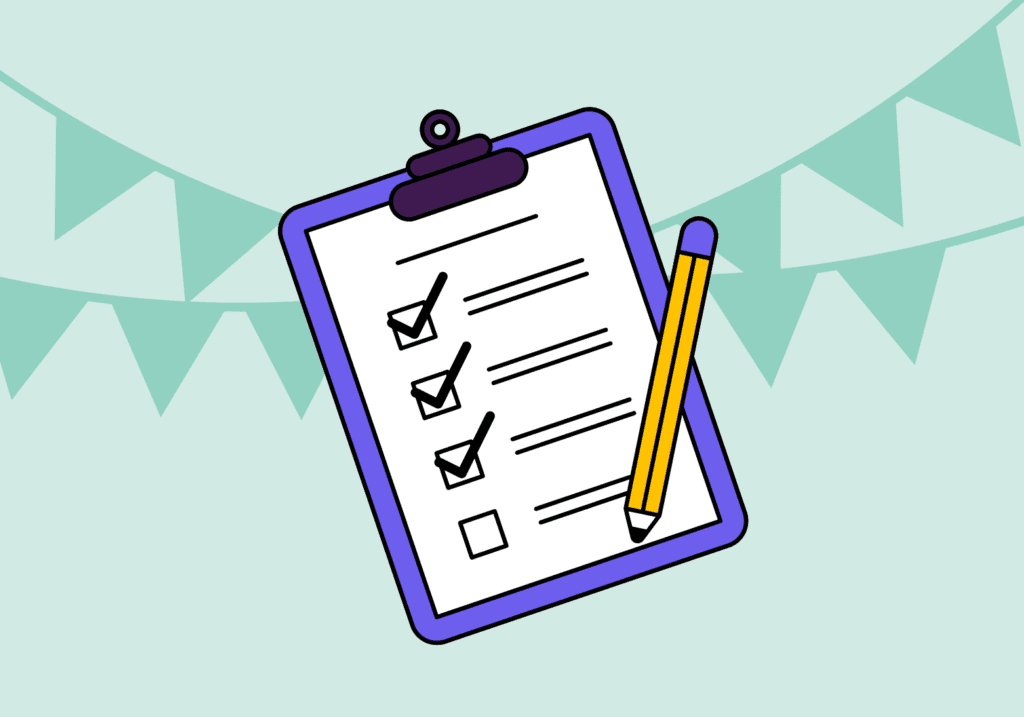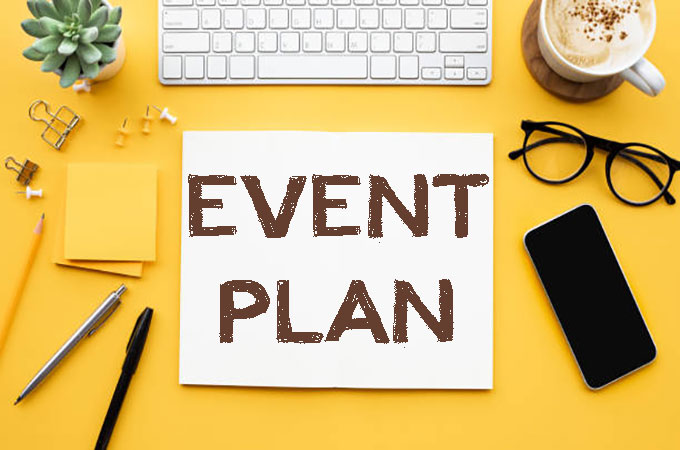Opening the Secrets of Effective Event Planning for Memorable Experiences
Successful event planning calls for a critical method that exceeds simple logistics. It includes a careful consideration of goals, audience, and themes. Coordinators have to focus on creating tailored experiences that engage participants and foster links. Nonetheless, the course to accomplishing memorable events is usually loaded with challenges. Understanding the nuances of reliable planning can reveal the possibility for absolutely impactful celebrations. What are the crucial elements that make an occasion memorable?
Defining Your Event Goals and Objectives
Clearness is essential when specifying event objectives and purposes, as it sets the foundation for a successful planning process. By expressing certain goals, event planners can develop a clear instructions and guarantee that all efforts line up with the preferred outcomes. Objectives ought to be achievable and measurable, enabling organizers to track development and review success efficiently.
Determining the overarching function of the event, whether it is to enlighten, delight, or promote, plays a substantial role in forming each decision made throughout the drawing board. Stakeholders should be associated with this first meaning stage to collect diverse point of views and promote a feeling of possession.

Recognizing Your Audience
Comprehending the audience is necessary for reliable event planning. This involves recognizing target demographics and assessing their preferences to tailor the event experience. By acquiring insight right into the audience's passions and qualities, coordinators can develop more appropriate and engaging occasions.
Recognizing Target Demographics
Just how can event planners guarantee their events resonate with participants? Recognizing target demographics is essential for crafting unforgettable experiences - event planning companies charlotte nc. Successful coordinators start by conducting extensive study to comprehend the age, rate of interests, and preferences of their audience. This entails studying aspects such as geographical location, social backgrounds, and socioeconomic status. By segmenting possible attendees into unique groups, planners can customize event components, including tasks, themes, and places, to line up with specific group features. Engaging with possible attendees through studies or social networks can provide useful understandings into their expectations. Inevitably, this targeted strategy allows event organizers to create tailored experiences that cultivate connection and involvement, making certain that events not just satisfy but exceed the needs of their audience
Evaluating Audience Preferences
Once target demographics are identified, the next step entails analyzing audience choices to develop a truly interesting event experience. Understanding what reverberates with the audience is vital for customizing content, tasks, and general environment. This procedure can be achieved via surveys, social media understandings, and past event feedback, which supply beneficial information on interests, preferences, and assumptions. Event planners should concentrate on crucial elements such as recommended styles, potential speakers, and wanted networking chances. Furthermore, watching on emerging fads can aid in anticipating audience needs. By leveraging this details, coordinators can develop events that not only attract participants yet additionally encourage energetic participation, guaranteeing a memorable experience that aligns with target market needs.
Crafting an One-of-a-kind Theme and Environment
To produce a memorable event, coordinators have to first define the event's objective, as this foundational step shapes the total experience. Visual cohesion plays an essential role in establishing a style that reverberates with participants, making each element of the decoration work harmoniously. Engaging all detects additionally improves the environment, guaranteeing that guests have an immersive experience that sticks around long after the event ends.
Specifying Your Event's Purpose
While numerous event organizers focus on logistics and visitor lists, specifying the event's objective is crucial for crafting an unique theme and ambience. Developing a clear purpose permits planners to align all elements of the event, from decoration to tasks, with a cohesive vision. This clearness helps in selecting a style that resonates with participants, ensuring that the experience is both unforgettable and interesting. A corporate retreat might highlight teamwork and development, while a wedding event might focus on love and celebration. By thoughtfully taking into consideration the event's intent, coordinators can create an environment that not only captures the essence of the celebration however additionally fosters purposeful links among visitors, boosting the general experience.
Developing Aesthetic Cohesion
Creating visual cohesion is crucial for changing an event into an unforgettable experience, as it joins numerous aspects under a single, compelling style. This process starts with a clear vision that overviews the choice of colors, decor, and materials. Each part must reflect the overarching motif, whether it be a corporate gala or a rustic wedding. Focus to detail, such as matching table setups and signage, reinforces this unity. Illumination plays an essential role, enhancing the atmosphere and highlighting crucial locations. In addition, including constant branding this link elements, such as logo designs and taglines, strengthens the motif while developing a professional touch. Ultimately, aesthetic cohesion not just astounds guests yet also cultivates a sense of belonging and interaction throughout the event.
Involving All Detects
Involving all detects is vital for crafting an one-of-a-kind motif and atmosphere that resonates with attendees. Successful event planners acknowledge that including aesthetic, acoustic, olfactory, responsive, and gustatory aspects creates an all natural experience. Thoughtful decoration sets the aesthetic tone, while thoroughly curated music includes an acoustic layer, improving the emotional ambience. Scents, whether from floral plans or food stations, evoke memories and promote conversation. Tactile experiences, such as interactive installments or textured materials, invite visitors to involve literally with the environment. Ultimately, offering distinct food and drink options can tantalize taste, leaving an enduring impression. By considering each sense, event organizers can develop remarkable experiences that deeply get in touch with participants, making certain that the event continues to be unforgettable long after it concludes.
Handling Logistics and Budgeting
Efficient event planning hinges on the careful monitoring of logistics and budgeting, as these elements are fundamental for making certain a seamless experience. An effective event requires careful focus to detail in working with transportation, venue choice, and needed tools. Planners must assess the needs of the event and create an extensive checklist to manage timelines properly.
Budgeting plays a considerable duty in figuring out the extent of the event. It involves not only designating funds for every facet however also anticipating prospective expenses and establishing apart contingencies. By focusing on spending, planners can make informed decisions on where to invest, whether in high-quality vendors or unique locations.

Involving Guests Throughout the Event
Exactly how can event coordinators assure that guests continue to be captivated and involved throughout the period of an occasion? Engaging guests requires a thoughtful mix of interactive elements, amusement, and individual connections. Efficient event planners integrate tasks that encourage participation, such as real-time surveys, Q&A sessions, or hands-on workshops.
In addition, creating a lively atmosphere with music, visual displays, or themed style can enhance the general experience. Using chances for networking and social interaction fosters connections amongst guests, making them feel more purchased the event.
Calculated use of technology, like event applications or social media combination, can maintain guests educated and engaged. Planning shock aspects, such as guest audio speakers or amusement interludes, website link can additionally catch interest and maintain excitement. Eventually, the key hinge on balancing framework with spontaneity, ensuring that guests really feel both engaged and entertained throughout the event.
Evaluating Success and Event Feedback
What techniques can event planners employ to analyze the success of their gatherings and gather useful feedback? Organizers often use sets of questions and surveys distributed soon after the event to catch attendees' impacts. These devices can be customized to evaluate complete satisfaction levels pertaining to various facets, such as venue, audio speakers, and total experience.
Furthermore, planners might carry out interviews or emphasis teams with pick participants for more extensive understandings. Social media monitoring also provides a real-time picture of attendees' beliefs, as guests usually share their experiences online.
Examining participation numbers and involvement metrics can further highlight locations of success and those requiring renovation. Examining the event's objectives against actual end results allows coordinators to recognize successes and voids, educating future events. By utilizing a mix of these strategies, event coordinators can gather comprehensive responses to enhance future events.

Frequently Asked Concerns
How Do I Choose the Right Location for My Event?
Picking the ideal venue involves assessing capacity, location, accessibility, facilities, and atmosphere. Additionally, considering spending plan constraints and the event's objective ensures an appropriate setting that satisfies attendees' requirements and enhances the general experience.
What Should I Include in an Event Planning Timeline?
An event planning timeline should consist of crucial landmarks, due dates for supplier bookings, spending plan analyses, place verifications, marketing timetables, staffing arrangements, and a list for day-of logistics to ensure a smooth execution of the event.
Just How Can I Properly Promote My Event?
To successfully promote an event, one need to use social networks platforms, engage regional influencers, develop distinctive visuals, provide very early bird tickets, and keep consistent interaction through newsletters and targeted ads to reach read this post here a wider audience.
What Are Some Tips for Handling Last-Minute Adjustments?
To manage last-minute adjustments effectively, one ought to preserve clear interaction with all stakeholders, focus on jobs, remain adaptable, and have backup plans ready (event planning companies charlotte nc). Versatility and a tranquil temperament can significantly decrease stress and anxiety during unexpected circumstances
Exactly how Do I Take Care Of Difficult Guests During the Event?

To develop a memorable event, coordinators should initially specify the event's objective, as this fundamental action shapes the overall experience. While several event coordinators focus on logistics and guest listings, defining the event's purpose is essential for crafting an unique motif and atmosphere. Effective event organizers acknowledge that incorporating visual, auditory, olfactory, tactile, and gustatory elements creates an alternative experience. Exactly how can event planners assure that visitors stay mesmerized and involved throughout the period of an occasion? Assessing the event's objectives against actual end results enables coordinators to identify voids and successes, notifying future occasions.